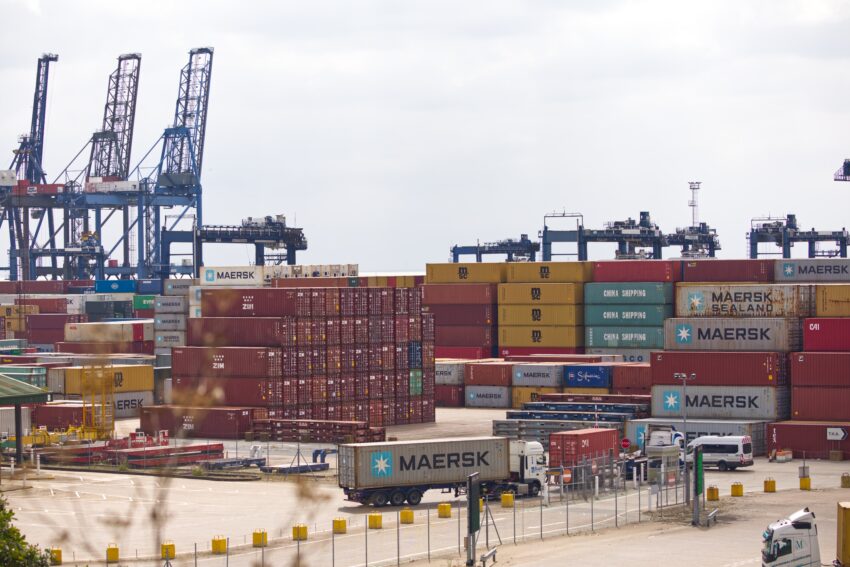Workers at the UK’s biggest container port will go on strike for more than a week later this month in a dispute over pay.
More than 1,900 members of Unite union at Felixstowe will strike for eight days from Sunday 21 August until Monday 29 August.
The union said that employer Felixstowe Dock and Railway Company had failed to improve on its offer of a 7% pay increase, following only a 1.4% increase last year.
Almost half of the UK’s container traffic comes through Felixstowe and Unite said the action would hit supply chains, the logistics and haulage sectors, as well as international maritime trade.
It is the latest round of industrial action by workers pushing for pay to keep up with the cost of living.
Unite national officer for docks Bobby Morton said: “Strike action will cause huge disruption and will generate massive shockwaves throughout the UK’s supply chain, but this dispute is entirely of the company’s own making.
“It has had every opportunity make our members a fair offer but has chosen not to do so.
“Felixstowe needs to stop prevaricating and make a pay offer which meets our members’ expectations.”
‘Massively profitable and incredibly wealthy’
Unite general secretary Sharon Graham said both Felixstowe docks and its parent company Hong Kong-based CK Hutchison are “massively profitable and incredibly wealthy”, adding: “They are fully able to pay the workforce a fair day’s pay.
“The company has prioritised delivering multi-million pound dividends rather than paying its workers a decent wage.
“Unite is entirely focused on enhancing its members’ jobs, pay and conditions and it will be giving the workers at Felixstowe its complete support until this dispute is resolved and a decent pay increase is secured.”
More talks are due to take place on Monday.
In a statement supplied to media, a spokesperson for the port said: “The company continues to actively seek a solution that works for all parties and that avoids industrial action.
“We understand our employees’ concerns at the rising cost of living and are determined to do all we can to help whilst continuing to invest in the port’s success.
“Discussions are ongoing and the company’s latest position in negotiations is an enhanced pay increase of 7%. We are meeting again on Monday 8 August with Acas and the union.
“The port has not had a strike since 1989 and we are disappointed that the union has served notice of industrial action while talks are ongoing. The port provides secure and well-paid employment and there will be no winners from industrial action.”
Felixstowe welcomes approximately 2,000 ship each year, according to its website, including some of the world’s largest container vessels.
Around 17 shipping lines operate from the port, offering 33 services to and from more than 700 ports around the world.
Speaking about the strike, Jason Webb, managing director of Electronic Temperature Instruments (ETI), a digital thermometer manufacturer, producing food temperature monitors and handheld thermometers for the catering industry said: “Brexit, the pandemic, the war in Ukraine, and now strikes. We are jumping from one major piece of disruption to the next, and it was always going to take supply chains years to recover from the repercussions of Covid alone. For us, getting back to what was a normal 12-week lead time for a component looks like a distant memory, and we are a long way from reaching that time frame again. What this has done, however, has demonstrated the sturdiness of the UK supply chain as it continues to pull together behind the scenes to keep bouncing back to each challenge that’s thrown at it. It is seriously being put to the test.
“Disruption is common and has been there for many years. However, disruption was always limited to a small percentage of products in our range. What we are seeing now is that most of our products are being disrupted by catastrophes. The UK has always been an exporting powerhouse. But we can’t be under any illusions that the past two-years has presented a host of obstacles and problems. It is taking significantly more time to do things which means we have had to throw extra resources to address shipping issues that previously weren’t a problem. A period of calmer waters will be welcomed by everyone throughout our industry supply chain.”


